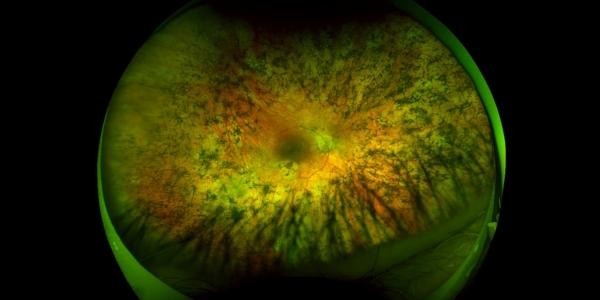2:0min

UsherKids Australia, a parent-led support organisation, is calling for increased education about the condition, following a collaborative study that found gaps in knowledge among healthcare professionals.
In December 2020, UsherKids Australia received a grant from the Melbourne Disability Institute and began a project to explore parent support needs in families affected by Usher syndrome, as well as examining allied health professionals’ awareness of the condition.
The grant connected the organisation to researchers at The University of Melbourne and the Centre for Eye Research Australia (CERA), and through this collaboration the project recently published research investigating how aware relevant allied healthcare professionals were of the cause, common symptoms, and key role professionals play in the care of Usher syndrome. This paper is now available freely at the Journal of Multidisciplinary Healthcare.
‘Usher syndrome is a rare genetic condition that causes deaf-blindness, affecting approximately 1 in 6,000 people worldwide. This condition involves hearing loss, progressive vision deterioration, and sometimes problems with balance. Patients need a team of different healthcare professionals working in tandem to ensure the best standard of care,’ said A/Prof Lauren Ayton, the joint lead author and head of Inherited Retinal Disease Research at the University of Melbourne and CERA.

The study specifically targeted audiologists, optometrists, and orthoptists, as these professions are often involved in the multidisciplinary care of people with Usher syndrome.
The online survey targeted clinicians working in Australian university-affiliated clinics. The survey asked respondents questions about Usher syndrome, such as identifying its symptoms and nominating which healthcare professionals are essential for managing the condition. Participants included 27 audiologists, 40 optometrists, and 7 orthoptists, with an average age of 37 and around 13 years of clinical experience.
All optometrists and orthoptists correctly identified that Usher syndrome was characterised by vision loss, but were less aware that the vision loss was congenital (77%). Most were aware that Usher syndrome also involved hearing loss (96%) that was progressive (92%). When compared to audiologists, optometrists and orthoptists were more aware that individuals with some subtypes of Usher syndrome can experience vestibular dysfunction and imbalance. However, the study revealed a lack of awareness across all professions about potential postural instability (51%) or gross motor delays (43%). Additionally, many respondents did not realise the critical roles of speech pathologists, geneticists, and genetic counsellors in the management of Usher syndrome. Furthermore, respondents were often not aware of specific care aspects related to their own discipline.
The senior author of the paper, Emily Shephard, is also both the Chief Executive Officer of UsherKids Australia and a mother of a child with Usher syndrome. She explained the findings of this study will contribute to the development of effective educational tools to enhance awareness among healthcare professionals and improve the quality of care for those living with Usher syndrome. The team also have plans for a trial of a multidisciplinary clinic for Usher syndrome led by allied health organisations in 2024.
‘Improving understanding around the balance issues and vision loss experienced by those with Usher syndrome is crucial. It is also essential for healthcare professionals to recognise the valuable roles they play in multidisciplinary care, so appropriate referrals can occur. By increasing awareness and knowledge, healthcare clinicians can support individuals with Usher syndrome and their families more effectively,’ said Emily.
For more information on the study, click here to read the full publication by UsherKids and the Melbourne Disability Institute.
Visit the UsherKids Australia website for more information on their research and initiatives.

Tagged as: retinitis pigmentosa, usher, usher syndrome, usherkids